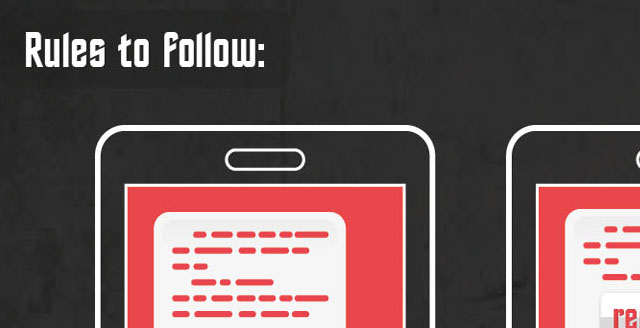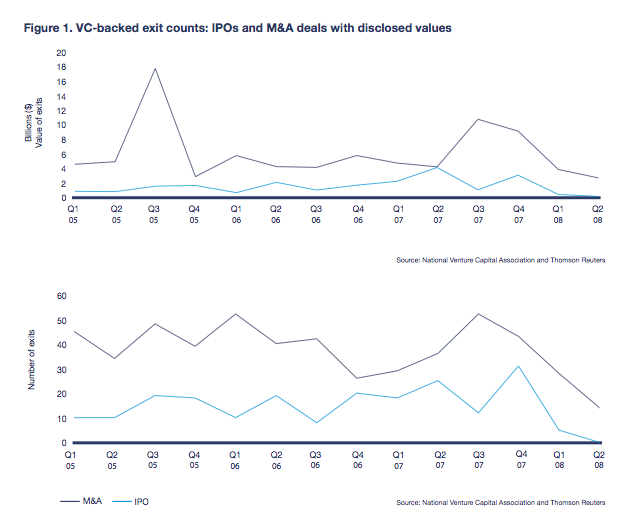The article Online Literacy is a Lesser Kind where Mark Bauerlein asks us to “restrain the digitizing of all liberal-arts classrooms” reminds me of one of the oldest jokes in the book. You know the one – a man walks into a doctor’s office and raises his arm above his head and says “Doctor, Doctor, it hurts when I do this.” The doctor, of course, says, “Well,don’t do that!” Not exactly helpful.
The problem with Bauerlein and so many like him is that he’s good at identifying a problem and poor at figuring out the solution. With all due respect to Bauerlein, Nicholas Carr and the growing cadre of people (all much smarter and better educated than me) that claim that the greatest communication platform the world has ever seen is responsible for the dumbing-down of its users (and yes, I know that “dumbing” isn’t a word), I humbly suggest they jump off the bandwagon and look for a more practical solution. Why? Because people are not going to stop consuming copious quantities of written information via the internet any time soon. And because I have evidence that they’re wrong.
At Spreed Inc. we continue to believe in the power of the computer. Rather than taking a step backward as the Luddite literati suggest, we understand that we’ve only just touched the surface, potential-wise, of computing and the internet. There are issues to be sure. We continue to adhere to a medieval artifact when presenting written text on electronic devises, a mistake that Spreed has wagered would eventually be corrected. But, in a relatively short period of time we’ve proven that speed and comprehension can be significantly improved (and improved over traditional paper-based, hard-copy reading) when delivering text to the user in the right format. Six young guys in an office over a one-year period accomplished this. Imagine what some greater minds than us could accomplish here!
Other problems identified by Bauerlein may be worth discussion. Is the internet leading to a bastardization of the English language and does it matter? But he doesn’t address this and instead focuses on the absurd claim that the computer “conspires against certain intellectual habits requisite to liberal-arts learning”. Really? Nothing in here about how the internet allows for greater access to diverse ideas and more efficient and effective research?
There’s so much that is wrong with Bauerlein’s article, I’m not exactly sure what to criticize. For someone blasting the academic capabilities of today’s youth, he sure takes some liberties with logic and fact. I suggest he re-read Nielsen’s studies and look at the sorts of “reading” Nielsen was referring to (search pages, websites, etc. – not academic prose). Of course they scan this material! Furthermore, somehow “screen reading” (which he also cleverly changes to “fast scanning” and “screen scanning”) is responsible for 41% of professors labeling students “not well prepared”? How so? And what of the 48% labeled “somewhat well prepared”? Can we assume them all to be hard-copy reading Amish-folk who managed to make it to university having avoided the computer? Finally, an academic of Bauerlein’s quality should know better than to cite 10 year old research on web reading when advances in content and the reading devices (flat panel monitors, iPhones, etc.) have rendered that research out of date. I could go on.
Bauerlein is a Luddite with an apparent agenda to shock and sell books. The title of his latest book The Dumbest Generation: How the Digital Age Stupefies Young Americans and Jeopardizes Our Future (Or, Don’t Trust Anyone Under 30) says it all. Maybe we shouldn’t be surprised. Historically, every generation hears these fear-mongering insults from previous generations, and I think history shows that each generation has proven to be better and more innovative than the last. Fortunately, access to quality content on the internet will improve and so will the ways we digest that information. I’m doing my part to further that end and won’t allow Baurlein or Carr to stand in the way.
















 Snowboarding, surfing and skateboarding “action sports” were always his passion.
Snowboarding, surfing and skateboarding “action sports” were always his passion.


